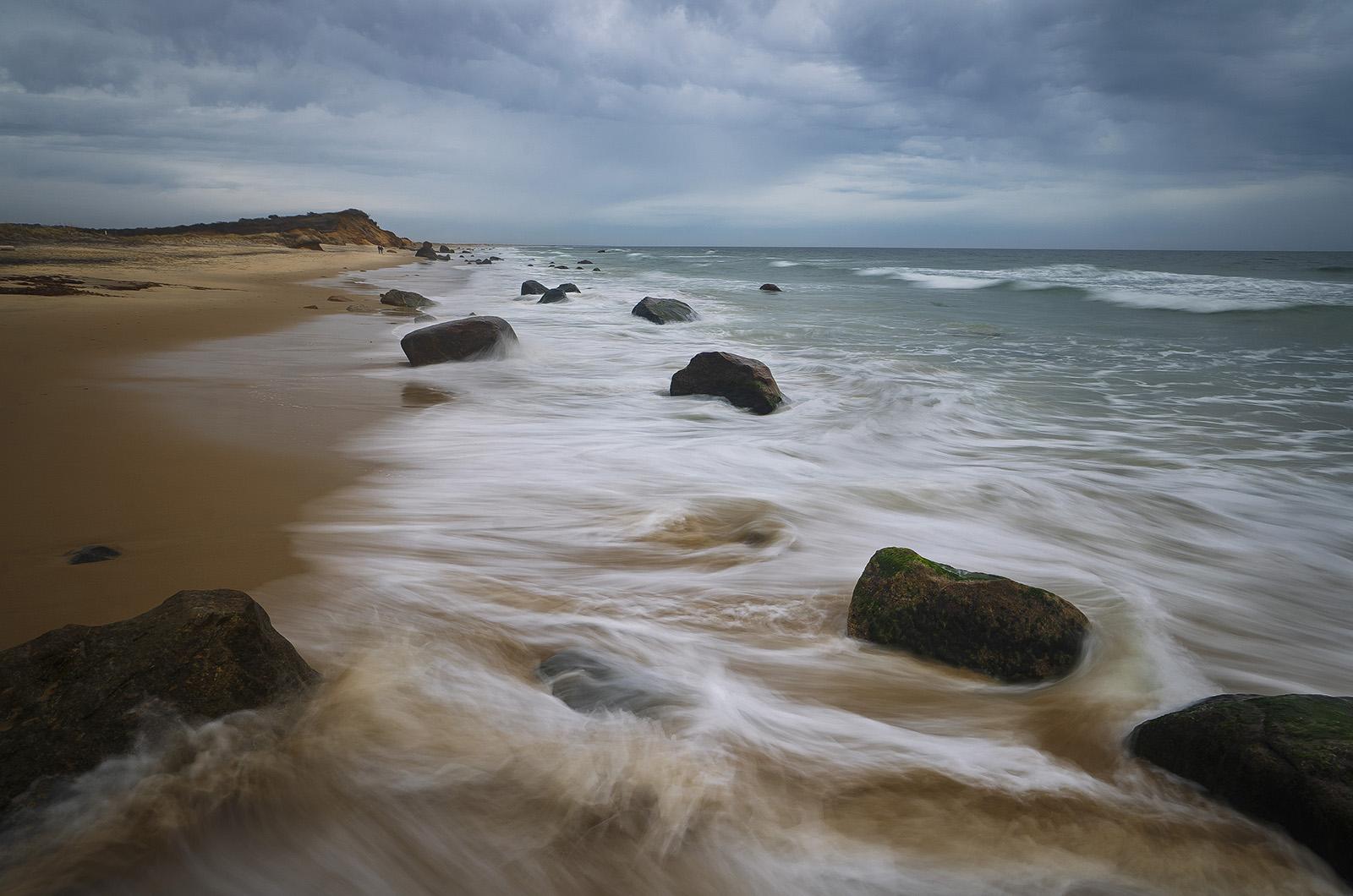After months of back-and-forth, the company behind a large commercial wind farm planned for south of Martha’s Vineyard has requested the state pull its project contracts, citing rising construction costs and an inability to renegotiate pricing.
Avangrid, the parent company of Commonwealth Wind, as well as two other industrial-scale offshore wind farm projects planned for south of the Island, said in a filing Friday with the state Department of Public Utilities that its 1,200 megawatt development was no longer commercially viable, and that the state should dismiss its current power purchasing agreements.
“Unfortunately, despite diligent efforts by Commonwealth Wind to find a path forward for the Project…the project cannot be financed and built under the current [power purchasing agreements],” the filing reads in part.
In its filing Friday, Avangrid requested that the state instead include the 1,200 megawatts of wind energy planned for the Commonwealth Wind development in its next round of offshore wind solicitation, which is set to occur this upcoming spring. Avangrid said that it would rather open up a new, competitive bidding process for the 1,200 megawatts of energy generation than proceed with its current agreements, which were signed in spring of 2022.
“At this juncture, the best option…is to dismiss this proceeding as to the [power purchase agreements] such that the offshore wind energy generation provided for in the [agreements] can be procured in the next solicitation,” the filing states. “No interest is advanced by approving power purchase agreements that cannot and will not lead to the development of offshore wind.”
Offshore wind companies negotiate complex pricing deals, called power purchasing agreements, with utilities prior to the start of project construction — a process that has to receive formal approval from the state. But Avangrid is now asking the state to toss its current proceeding, saying it can’t afford to build the project at its current price agreement.
Avangrid’s decision has the potential to throw the state’s ambitious green energy goals in flux, as well as lead to significant delays for the project, which was initially planned to go on-line in 2028. The state’s goals, which include achieving net-zero carbon emissions by 2050, partially hinge on the state’s ability to procure 3,200 megawatts of offshore wind energy by 2030.
“The Baker-Polito Administration is disappointed by Avangrid’s request to the Department of Public Utilities to dismiss the review of the Commonwealth Wind contracts," said Danielle Burney, a spokesman for the state's Executive Office of Energy and Environmental Affairs, "but remains committed to the deployment of commercial-scale offshore wind and advancing clean, affordable energy on behalf of the Commonwealth’s residents and businesses.”
The announcement from Avangrid comes three weeks after it said in a November filing that it did not wish to dismiss its power purchase agreements, despite significant financial turbulence that threatened the project’s viability. But after utility companies refused to renegotiate pricing, Avangrid reversed course on Friday, saying that the war in Ukraine and inflation had created unprecedented economic headwinds.
“The global economy has changed both dramatically and swiftly in ways that could not have been managed or predicted by Commonwealth Wind,” the filing states. “Among other factors, the prolonged war in Ukraine has unsettled markets and increased costs for many products, inflation has been persistent, interest rates have increased in a manner unprecedented in recent times, commodity prices have risen sharply, and supply shortages and supply-chain constraints once thought to be temporary remain pervasive.”
The company also cited data showing that the costs of building turbines had grown significantly, and would continue to rise, contrary to historic trends.
“Simply put, it is now far more expensive to construct the project than could have been reasonably foreseen even earlier this year,” Avangrid said.
If the state accepts Avangrid’s request and includes the 1,200 megawatts of energy in its next solicitation, there is no guarantee that Avangrid receives the winning bid. But the company expressed confidence that it would win out in a statement Friday, and blamed utility companies for refusing to renegotiate project pricing.
“Avangrid is committed to bidding Commonwealth Wind into that solicitation, and has the utmost confidence, given the advanced stage of the project and its inherent benefits, that it can address the current economic challenges facing the project and offer the most cost-effective pricing,” the statement said.
Vineyard Wind — an 800 megawatt wind farm planned for a northern section of a lease area shared with Commonwealth Wind — has started construction on its undersea cable that will connect the turbines to a switching station on Cape Cod. The project remains scheduled to go online in late 2023 or 2024.
Avangrid is the parent company of Vineyard Wind, as well as a third project south of Martha’s Vineyard called Park City Wind, which is sandwiched between Commonwealth Wind and Vineyard Wind in the shared lease area. Unlike the other two projects, Park City Wind is part of Connecticut’s offshore wind procurement process.






Comments (22)
Comments
Comment policy »